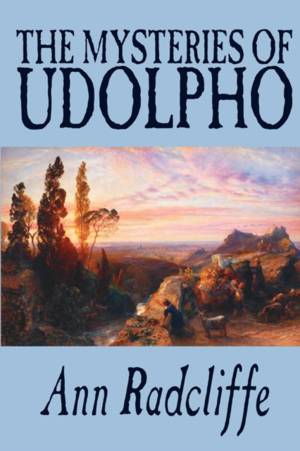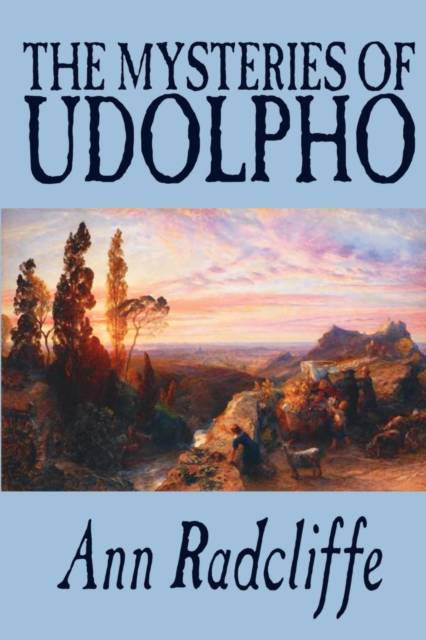
- Afhalen na 1 uur in een winkel met voorraad
- In januari gratis thuislevering in België
- Ruim aanbod met 7 miljoen producten
- Afhalen na 1 uur in een winkel met voorraad
- In januari gratis thuislevering in België
- Ruim aanbod met 7 miljoen producten
The Mysteries of Udolpho by Ann Radcliffe, Fiction, Classics, Horror
Ann RadcliffeOmschrijving
Mysterious sounds, opened doors, frightful legends and a nameless horror in a niche behind a black veil all operate in quick succession to unnerve the heroine and her faithful attendant, Annette; but finally, after the death of her aunt, she escapes with the aid of a fellow-prisoner whom she has discovered. On the way home she stops at a chateau filled with fresh horrors -- the abandoned wing where the departed chatelaine dwelt and the bed of death with the black pall -- but is finally restored to security and happiness with her lover Valancourt, after the clearing-up of a secret which seemed for a time to involve her birth in mystery.
Clearly, this is only familiar material re-worked; but it is so well re-worked that Udolpho will always be a classic. Mrs. Radcliffe's characters are puppets, but they are less markedly so than those of her forerunners. And in atmospheric creation she stands preeminent among those of her time." -- H. P. Lovecraft, "Supernatural Horror In Literature"
The Mysteries of Udolpho, by Ann Radcliffe, was published in four volumes on 8 May 1794 by G. G. and J. Robinson of London. The firm paid her £500 for the manuscript. The contract is housed at the University of Virginia Library.
Mrs. Radcliffe wrote six novels; The Castles of Athlin and Dunbayne (1789), A Sicilian Romance (1790), The Romance of the Forest (1792), The Mysteries of Udolpho (1794), The Italian (1797), and Gaston de Blondeville, composed in 1802 but first published posthumously in 1826. Of these Udolpho is by far the most famous, and may be taken as a type of the early Gothic tale at its best.
Specificaties
Betrokkenen
- Auteur(s):
- Uitgeverij:
Inhoud
- Aantal bladzijden:
- 608
- Taal:
- Engels
Eigenschappen
- Productcode (EAN):
- 9781592243549
- Verschijningsdatum:
- 1/09/2003
- Uitvoering:
- Paperback
- Formaat:
- Trade paperback (VS)
- Afmetingen:
- 154 mm x 234 mm
- Gewicht:
- 902 g

Alleen bij Standaard Boekhandel
Beoordelingen
We publiceren alleen reviews die voldoen aan de voorwaarden voor reviews. Bekijk onze voorwaarden voor reviews.









